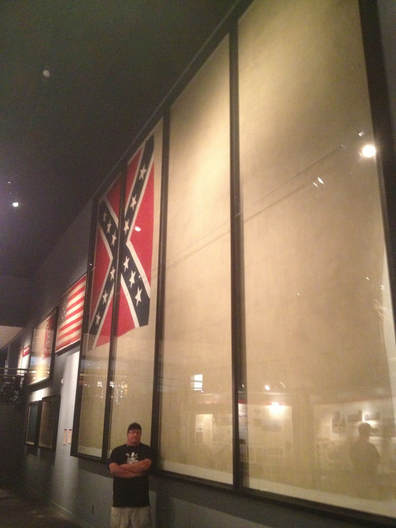 Standing in Front of the Battle Ensign of the CSS Atlanta, National Civil War Naval Museum, Columbus, GA Standing in Front of the Battle Ensign of the CSS Atlanta, National Civil War Naval Museum, Columbus, GA By Sam Burnham @C_SamBurnham An article on the London School of Economics and Political Science's US Centre blog is summarizing a study which claims that "Those who support the presence of Confederate symbols in public spaces in the South tend to have less knowledge of Civil War history, negating a commonly used defense that the emblems represent ‘heritage not hate’" The article is authored by Logan Strother of Princeton University, Spencer Piston of Boston University, and Thomas Ogorzalek of Northwestern University. I want to discuss this paper because I think it calls to attention a few points that Southerners do really need to consider even in the face of some of the paper's flaws. Think of it as a chance for some constructive criticism and not just a northern elites trying to school southerners on history and culture. Don't worry, I'm going to discuss both sides of that coin. Let's start out by being candid about a few things this study hints at that are right. There are just a few things that make me roll my eyes more than some loud, jacked up monster truck plowing down the road with the Confederate Naval Jack flying in tow. There is a flippant and, honestly, disrespectful manner in which many display the variations of the emblem commonly (inaccurately) referred to as "the Confederate flag". The truck scenario, the sight of a tattered flag flapping in breeze while the superimposed grin of Hank Williams Jr looks out over stacks of wrecked cars and chained up dogs, and a bunch of Michiganders wearing Klan robes and flying this emblem all come to mind. The authors of the study quote the United Daughters of the Confederacy voicing their concern that the “sacred banner was being trivialized and dishonored” as it became a more common sight outside of official memorial observances. The banner carries an honor - if it is about history and heritage for you, then hold it with the honor of the soldiers who carried it into battle and display it with the same respect you would offer up to those soldiers. There are inconsistencies in this article as well. The article refers to "people who support the presence of Confederate symbols in public spaces" as having "less knowledge of Civil War history." In the paper and the article alike, they tend to fuse Southern history and Civil War history into one category while Southern history encompasses much more than just those four years.The level of knowledge held by Georgia survey's subjects was determined with two questions: 1) "Do you know the names of any Civil War battles?" (Two responses were needed to get a fully positive result. No additional responses were scored.) And "Do you happen to know who William Tecumseh Sherman was?" Admittedly, these are basic questions and these two questions were standard for all subjects of the study. But two questions can hardly indicate the entirety of someone's knowledge of the war, much less the South in general. And asking about a Union General isn't exactly reaching for the epitome of Southern history. They also refer, in the article, to monuments, symbols, emblems, etc while the study itself focuses only on the presence of the emblem commonly referred to as "The Confederate flag" of "battle emblem," particularly how that emblem is either displayed at state capitols or incorporated into state flags. No statues, memorials, graves, museums, or any of the hundreds of flags used by Confederate forces, regular or militia. Nor does it address the any of the three official national flags of the Confederate States of America. Out of all the Confederate emblems that the article purports are supported by less knowledgeable people, only the battle emblem was discussed with the subjects of the study. Speaking of flags, the paper addresses the controversy over Georgia's state flags: "In 2001, Governor Roy Barnes took up the issue of the flag, again proposing to remove the Confederate emblem and replace it with the state seal (the new design also include each of the states’ previous flags in miniature in a banner beneath the seal). Barnes’ supporters revealed the bill on January 21, 2001, and his allies in the legislature called for a vote the same afternoon. The Confederate emblem’s supporters had no time to respond or to marshal public opinion, allowing Barnes’ proposal to narrowly pass,,,Barnes’ flag design flew over the state capitol from 2001 to 2003. The abrupt adoption of the Barnes’ flag caused a political controversy, and was likely a contributing factor in Barnes’ loss to Sonny Perdue in the ensuing gubernatorial election." "Likely a contributing factor?" The way the flag was changed is widely accepted in Georgia to be the final event that brought down the one party system in Georgia. In the following election the GOP took the governor's mansion and both houses of the legislature after over a century of Democratic rule. This election ended the Tom Murphy political machine and unseated the longest serving state house speaker in US history. Georgia went from a few GOP legislators and a rare GOP gubernatorial challenger to a Republican-dominated state government the very next election.
1 Comment
Linda B
7/23/2017 02:31:31 am
I'm not sure how this *paper* got started, but personally I think just those few questions being asked of the average Southerner might have received a lot of different answers. I don't think the average Southerner reads about the history of the War. Just like when Ken Burns did his documentary on the Civil War - you could tell he was a Yankee just by the way it was documented in the voice-overs. Even though I am a Southerner I did enjoy his documentary, but only because it takes me back to that time and how hard it was on average civilians. The death and destruction was overwhelming. And on a side note, I do know my Southern flags. When you spoke about the referendum on the state flag of Georgia, I remember how livid I was with Perdue because he promised to bring back the 1856 flag and then he broke that promise. Of course, when I saw the new flaag I laughed because it looked so much like the First Flag of the Confederacy. I figured all those black folks down in Atlanta didn't have a clue, and I expect one of these days when they do realize what it looks like, Georgia will have another flag.
Reply
Leave a Reply. |
Sam B.Historian, self-proclaimed gentleman, agrarian-at-heart, & curator extraordinaire Social MediaCategories
All
Archives
November 2022
|
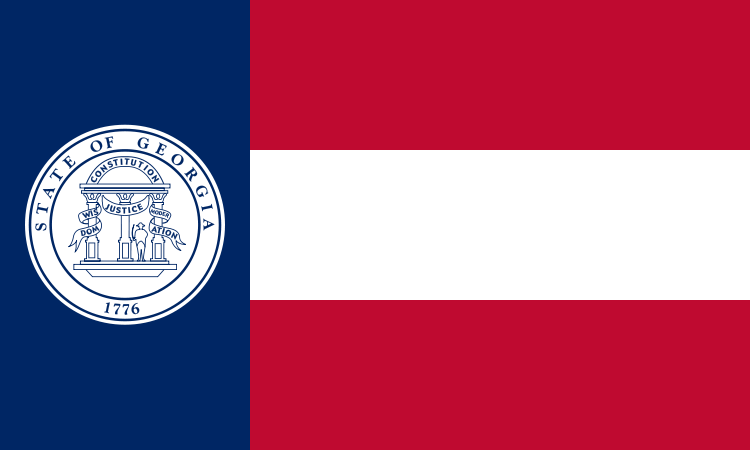
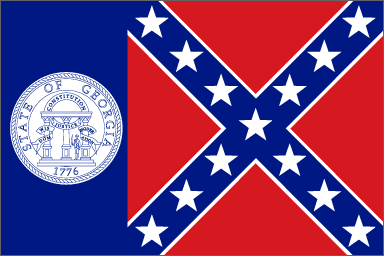
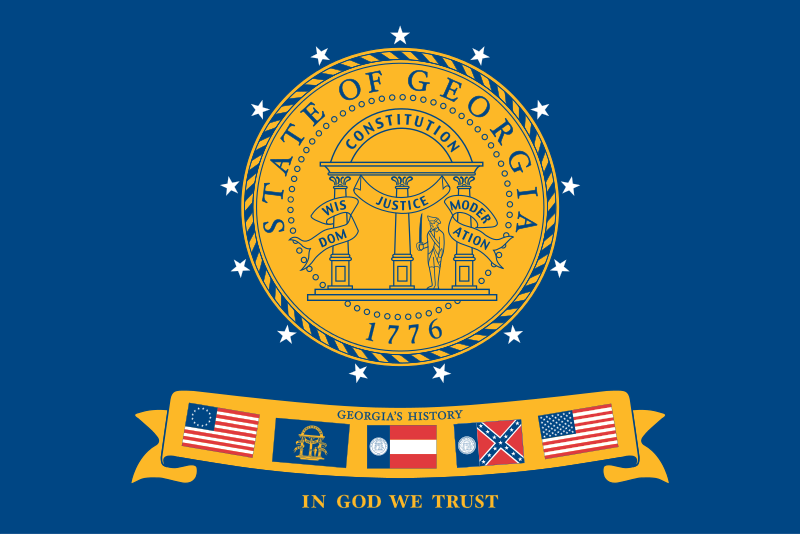
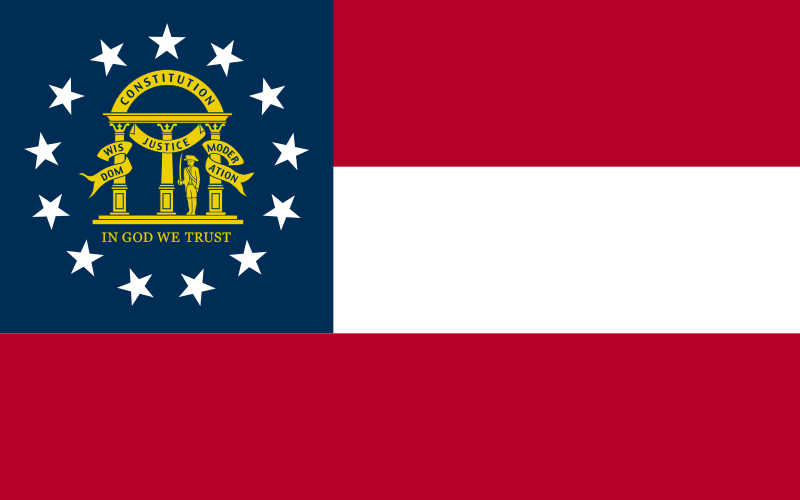
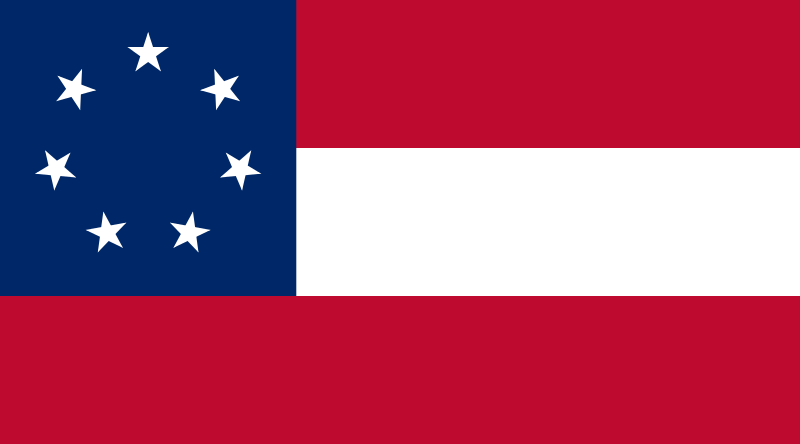




 RSS Feed
RSS Feed
